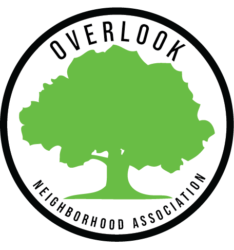At the Overlook Neighborhood Association May general meeting, residents heard presentations from two of the community-based nonprofits currently leading the way on Portland’s air quality issues.
Eastside Portland Air Coalition supports adequately funded, health-based air toxics regulation and enforcement based on the precautionary principle. Moving forward, their priories are that health must come first, that polluters must bear the burden of proof and that transparency is mandatory.
Neighbors for Clean Air focuses on administrative and community advocacy. Their priorities are creating a local air authority similar to the one already established in Lane County and requesting that public interest attorneys be on any committees working on issues of air quality.
A video timeline of air toxics issues in Portland is available online as is a map of air contaminant discharge permits in the city, including in and around Overlook.
If you’re wondering how your soil stacks up or if the food in your garden is safe to eat Lead Safe America provides free testing. Note that Lead Safe America is not an accredited lab. The test results are provided for “information purposes” only. If you need certified test results (for a legal case or other reason), you should follow up with testing by an accredited lab.
Sustainable Overlook’s Mulysa Melco provided information on best practices for contaminated soil and how residents can help better our air and soil quality in their own yards.
Her suggestions to prevent soil contamination are:
- Garden in raised beds.
- Keep dust down by planting ground covers or eco-lawn, mulching, permeable paving.
- Raise soil pH and add carbon to soil (compost) to make heavy metals less mobile.
- Garden pesticide free.
- Choose organic fertilizers or compost over synthetic fertilizers.
- Wash garden produce, keep babies and kids from playing/ingesting in contaminated soil. Dust from contaminated soil is main exposure route.
- Learn more atgov
Friends of Trees pointed out the health benefits of trees. They lead to cleaner air that improves respiratory health. Plants take in carbon dioxide and release oxygen and filter air as they do so. They also help provide cleaner water and soil through filtration.
Friends of trees suggested a number of species for healthy neighborhoods:
- Big leaf (for ample size sites) and vine maple (for small spaces and as an understory tree)
- Oregon white oak
- Cascara
- Black walnut
- Dogwood (choose disease resistant varieties)
- Oregon white oak
- Cascara
- Black walnut
- Dogwood (choose disease resistant varieties)
- Tulip tree (Yellow poplar or Liriodendron)
- Douglas fir
- Pines Shore pine is a great medium size native Pine.
- Learn more online.
